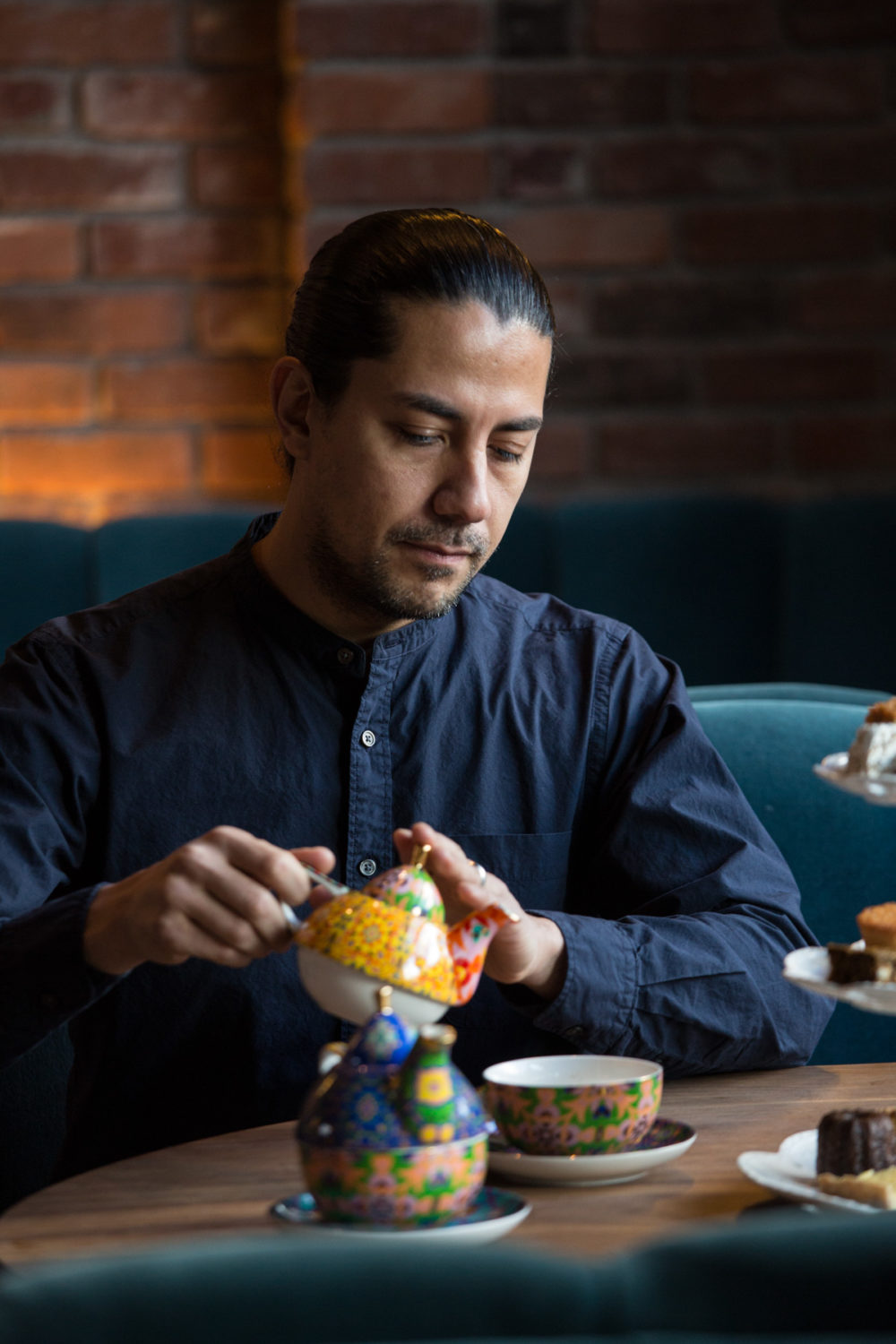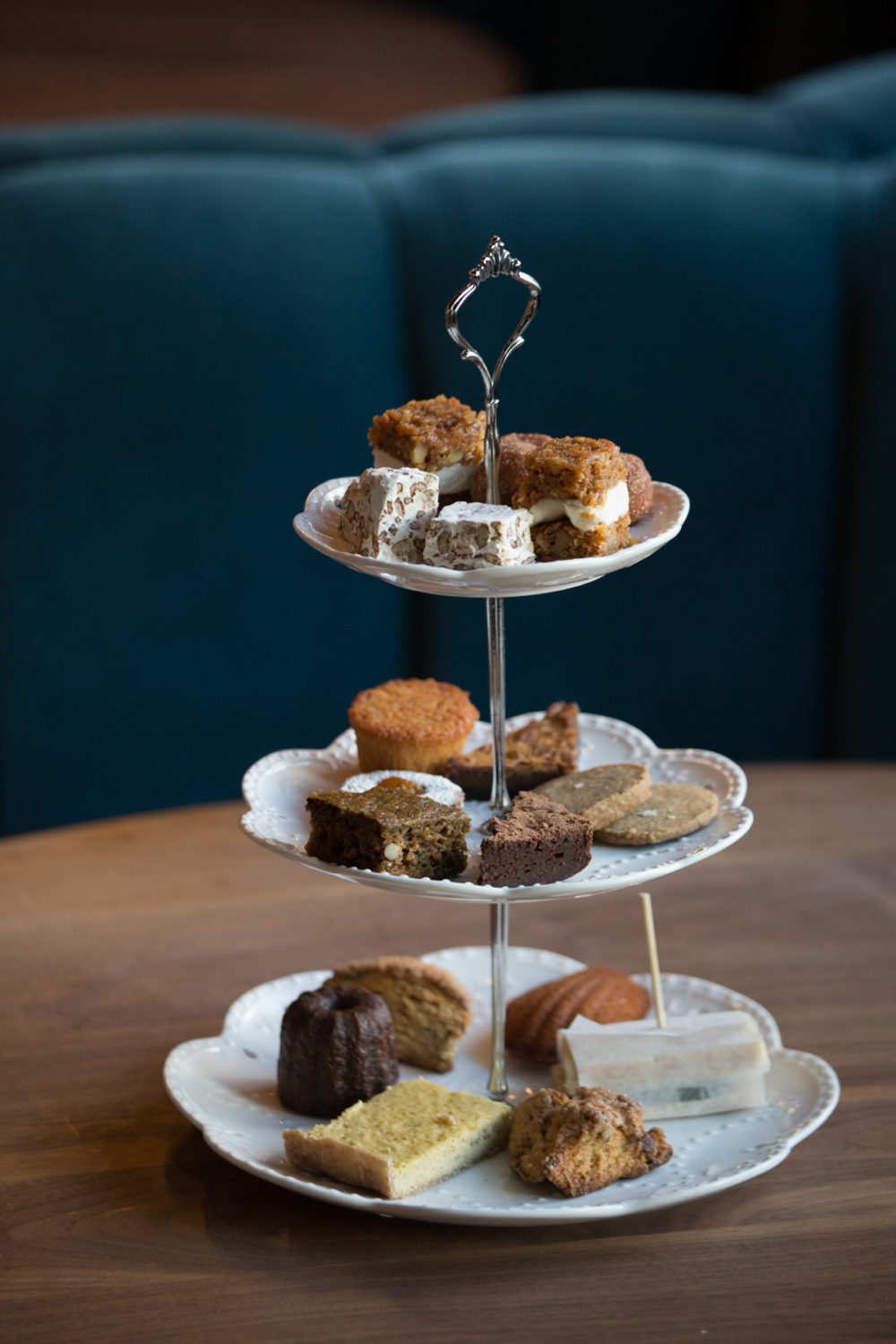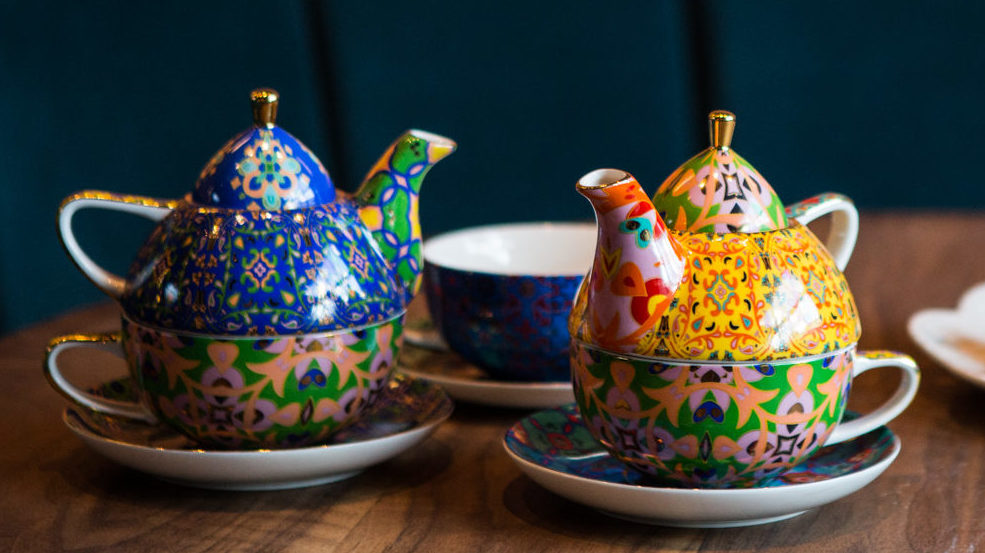As other brand-new luxury hotels in Brooklyn woo guests with ultramodern amenities like complimentary Tesla rides (1 Hotel Brooklyn Bridge) and an on-property gourmet food truck (The William Vale), The Williamsburg Hotel has taken a more traditional approach.
As in, a tradition that’s more than 2,000 years old.
To set itself apart from the competition, The Williamsburg recently tapped Stefen Ramirez of the neighborhood business Tea Dealers, who trained at Urasenke tea school in Kyoto, Japan, to curate a weekend-afternoon “High Tea.” The $40-per-person offering includes three tiers of fresh-baked pastries developed by chef Adam Leonti.
Hotel guests who are used to drinking mass-produced tea should be forewarned. Sampling Ramirez’s high-quality picks can be habit-forming. “Once we start talking, people start realizing that there’s so much more to it than meets the eye, and no longer are they satisfied with the tea they buy at their grocery stores,” Ramirez says. “They can’t touch the stuff anymore. That’s usually the most common response that I get when someone visits me again: ‘You have completely ruined my taste of tea, because I can only drink this kind of level now.’ And it has nothing to do with price.”

Ramirez finds that millennials “really drink a lot of tea. They don’t mind spending $15 on a really good tea, and especially when it has a story”
His Exotic Sources
Ramirez’s current selections range the globe, from 15-day shaded, single-cultivar Yabukita Karigane green tea grown on a nine-generation farm in Nara, Japan, to Nahorabi Assam tea from India. These are served with delicate sweet and savory bites, including sweet potato doughnuts and sage-and-white-chocolate scones, made from chef Leonti’s hand-milled flour.
The High Tea “fits with our somewhat elevated approach to service in our environment, in our neighborhood, but we wanted to do it without being fussy,” says Aron Kelly, general manager of the soon-to-be-opened restaurant Harvey at The Williamsburg Hotel. “We wanted to take everything good about that experience, usually served in posh environments, and make it ours and do it well. Lo-fi High Tea, Brooklyn High Tea—that’s the idea.”
Indeed, when Colombia-born Ramirez shows up to guide guests’ choices during High Tea, cutting a fashionable silhouette in navy-and-black clothing and sporting a sleek man bun, guests know they’re getting something different.
In other words, this isn’t your Queen Mother’s tea service.
Ramirez speaks with a measured directness that underscores his palpable passion for the beverage. When recommending teas to guests, he first asks whether they prefer caffeine or no caffeine. “That’s basically like the question between red or white [wine],” he says. Then, he says, he can be creative, asking guests what tea they’re most familiar with: Green tea? Black? Then he typically goes with the opposite. Knowing where they’re coming from “helps me understand what they can relate to, but I shouldn’t give them something they’re expecting,” he says.

Among the pastries offered in the High Tea are sweet-potato doughnuts and sage-and-white-chocolate scones
“Even as soon as the tea is served at the table, just by the aroma, they’re piqued, they know that this is actually something that they’ve never had before,” he says. “They’ve had many black teas before, they’ve had many green teas before, but they’ve never had my selection. And that is basically me going through 40, 50, 60, 70 samples and really picking them based on taste. I’m known to only purchase the highest quality, so when new farms and new vendors want to work with me, they know to send me only their best.”
Training in Tea
Ramirez got his first taste of tea bliss when he was between jobs in the fashion industry in the mid 2000s. Walking up Madison Avenue, he happened upon a striking, almost mystical tea shop. Glass vials were filled with 120 different selections, rice paper dangled grandly from the second floor to the first, and the store had a selection of gorgeous teapots. He knew he had to be involved. Six months later, Stefen had passed the test to become a tea specialist and was named assistant manager.
He worked in the store for two and a half years, later going out on his own to sell tea directly to consumers from a fancy briefcase. “I would go into a townhouse on the Upper East Side, have a tea tasting in the living room of one of my best clients, they would me a write check for $3,000 or $4,000, and the deal would be done,” he says. And, yes, Ramirez is aware of the connotation of a Colombian “tea dealer” selling packages from a briefcase. He did get the occasional side-eye from his customers’ maids.
In between sales, he’d make yearly trips to Japan to pick out teapots for his customers’ yachts and homes. One particular client had an affinity for horses, and Ramirez found an artist he describes as a “living treasure” who hand-painted the animals directly on the ceramic tea sets for her farmhouse. Later, he enrolled in the 400-year-old Urasenke tea school on a cultural visa, where he wore a kimono every day for a year and a half, studying traditional tea ceremony and the intricacies of tea culture.

Brightly decorated ceramic tea sets are part of the aesthetic
In Williamsburg especially, Ramirez’s background, specialization, and presentation style is valuable—particularly to the hotel’s younger guests, often from countries like Turkey, Russia or Japan. He became familiar with the demographic while holding free evening tastings at the Japanese restaurant 1 OR 8 in Williamsburg.
“I learned about the millennials: young individuals who come from really good families, not necessarily wealthy families, but families that have instilled healthy diets, the knowledge of eating well,” he says. “They really drink a lot of tea. They don’t mind spending $15 on a really good tea, and especially when it has a story, where it’s pure, where it’s natural agriculture.”
The hotel is as happy with Ramirez’s process as the guests are. “Our team learns from him, guests love the approach, and no one feels like they are being instructed,” Kelly says. “It lifts that posh veil—at least we hope it does.”